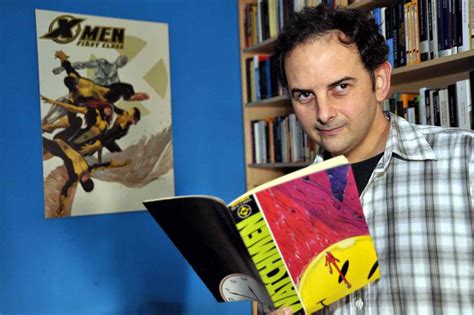A Quote by Philip Roth
Any satirist writing a futuristic novel who had imagined a President Reagan during the Eisenhower years would have been accused of perpetrating a piece of crude, contemptible, adolescent, anti-American wickedness, when, in fact, he would have succeeded, as prophetic sentry, where Orwell failed.
Related Quotes
John Kerry and the other Democratic leaders are on the wrong side of history, as they were during the Reagan presidency. If they had won the day, and Reagan had failed, the Soviet Union would still exist, as would all the harm and suffering it unleashed, and American security would be far weaker as a result. And if they win this election thanks to a promise to undo the Reagan-Bush Doctrine, those cheering loudest will be the most evil-loving among us.
We had the clip of [Donald] Trump saying: I'm not president of the globe. I'm president of the United States.[Ronald] Reagan would have never said that. [Dwight] Eisenhower would have never said that, because he would have said, yes, I'm president of the United States, but it's in our interests to be securing a world order.
He had learned from experience that what he succeeded in putting down on paper was only ever a pale reflection of what he had imagined, and so he had come to accept that this would only be half as good as the original, half as acceptable as the flawless, unachievable novel that had acted as a guide, and which he imagined pulsating mockingly behind each book like some ghostly presence.
Over the years, my marks on paper have landed me in all sorts of courts and controversies - I have been comprehensively labelled; anti-this and anti-that, anti-social, anti-football, anti-woman, anti-gay, anti-Semitic, anti-science, anti-republican, anti-American, anti-Australian - to recall just an armful of the antis.
I'm concerned about the negative aspect of political campaigning in american nation, which is a new phenomenon. When I ran for president against Gerald Ford and later against Ronald Reagan we never referred to each other except as 'my distinguished opponent'. And had we criticised personally our opponent it would have been political suicide, we would have been castigated and condemned for it.
President Roosevelt and President Truman and President Eisenhower had the same experience, they all made the effort to get along with the Russians. But every time, finally it failed. And the reason it failed was because the Communists are determined to destroy us, and regardless of what hand of friendship we may hold out or what arguments we may put up, the only thing that will make that decisive difference is the strength of the United States.
What Orwell feared were those who would ban books. What Huxley feared was that there would be no reason to ban a book, for there would be no one who wanted to read one. Orwell feared those who would deprive us of information. Huxley feared those who would give us so much that we would be reduced to passivity and egoism. Orwell feared that the truth would be concealed from us. Huxley feared the truth would be drowned in a sea of irrelevance.
It was only after two years' work that it occurred to me that I was a writer. I had no particular expectation that the novel would ever be published, because it was sort of a mess. It was only when I found myself writing things I didn't realise I knew that I said, 'I'm a writer now.' The novel had become an incentive to deeper thinking. That's really what writing is—an intense form of thought.
We were really helped when President Ronald Reagan came in. I remember non-commissioned officers who were going to retire and they re-enlisted because they believed in President Reagan. That's the kind of President Ronald Reagan was. He helped our country win the Cold War. He put it behind us in a way no one ever believed would be possible. He was truly a great American leader. And those of us in the Armed Forces loved him, respected him, and tremendously admired him for his great leadership.







































